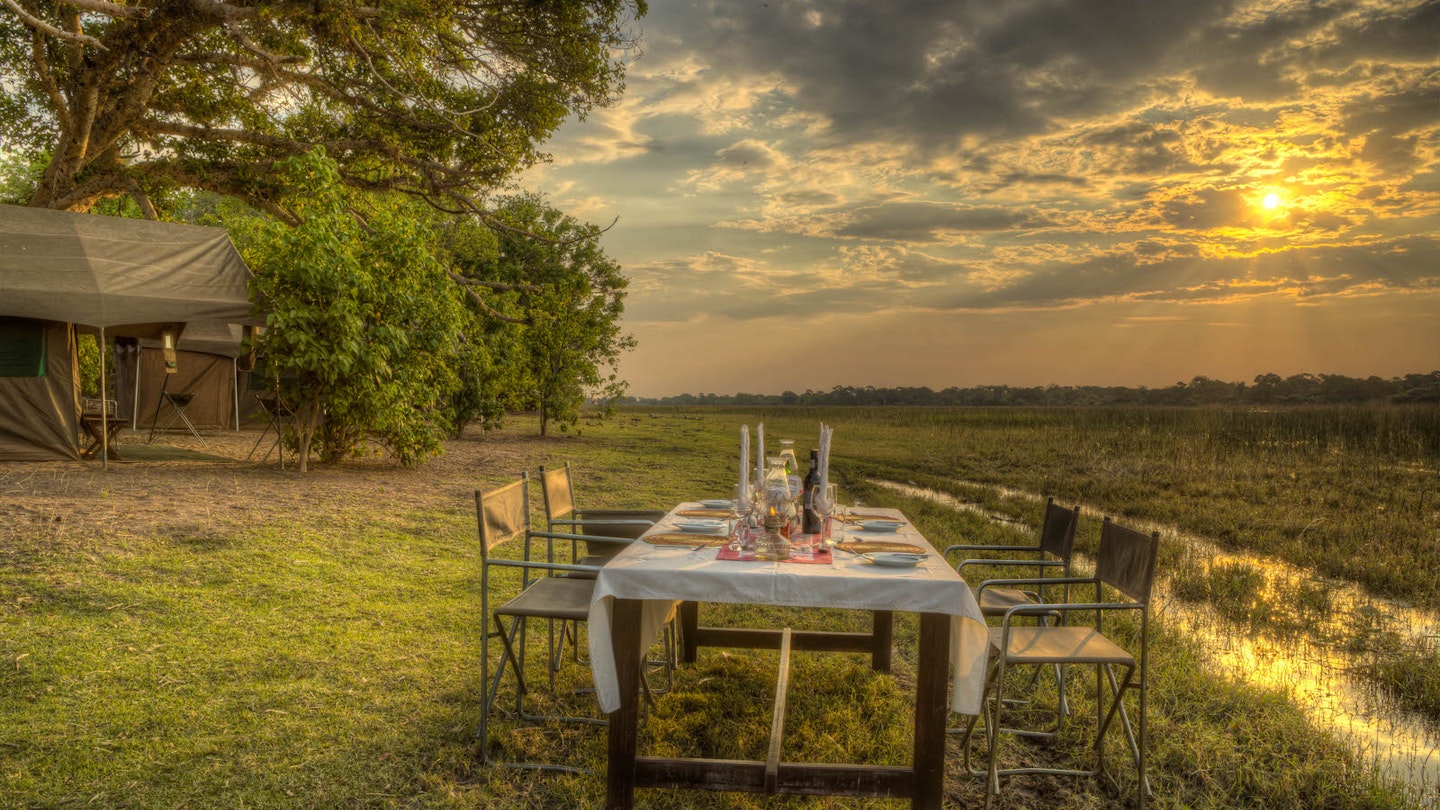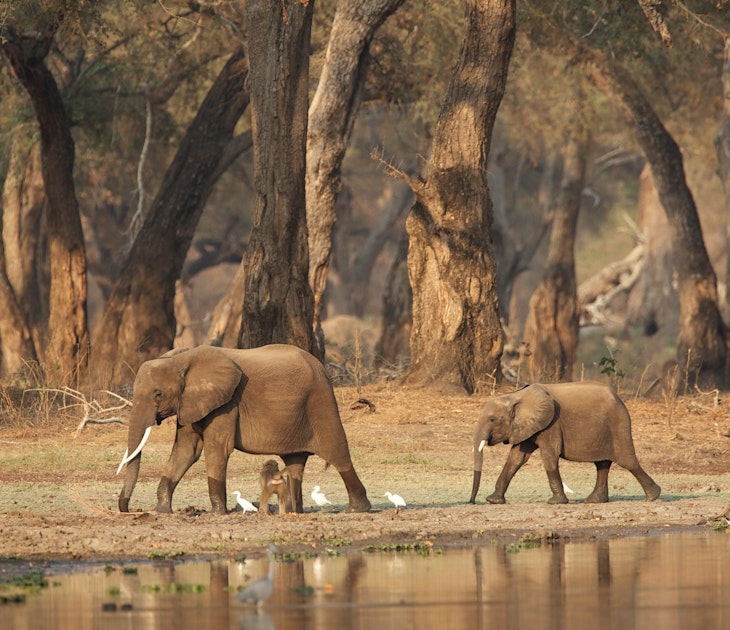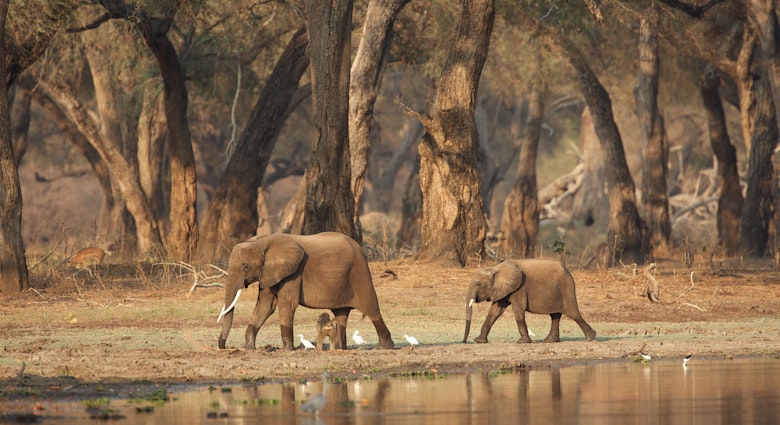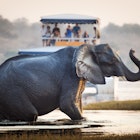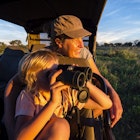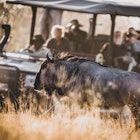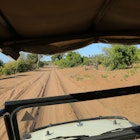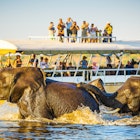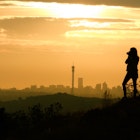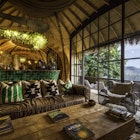Sleeping in the wild on a mobile safari, with nothing but a piece of canvas between you and Africa's wildlife, may not be for everyone, but it makes for a fully immersive experience.
Increasing competition among Botswana’s high-end safari companies has led to lodge rooms resembling palatial villas complete with plunge-pools, private butlers and an eye-watering price tag. But the cost is not the only drawback – in some lodges, it feels like you are being separated from the wilderness, almost akin to being cocooned in a plush boutique hotel with National Geographic on a jumbo screen. For an authentic safari, it is difficult to beat a mobile – the original form of this quintessentially African adventure.
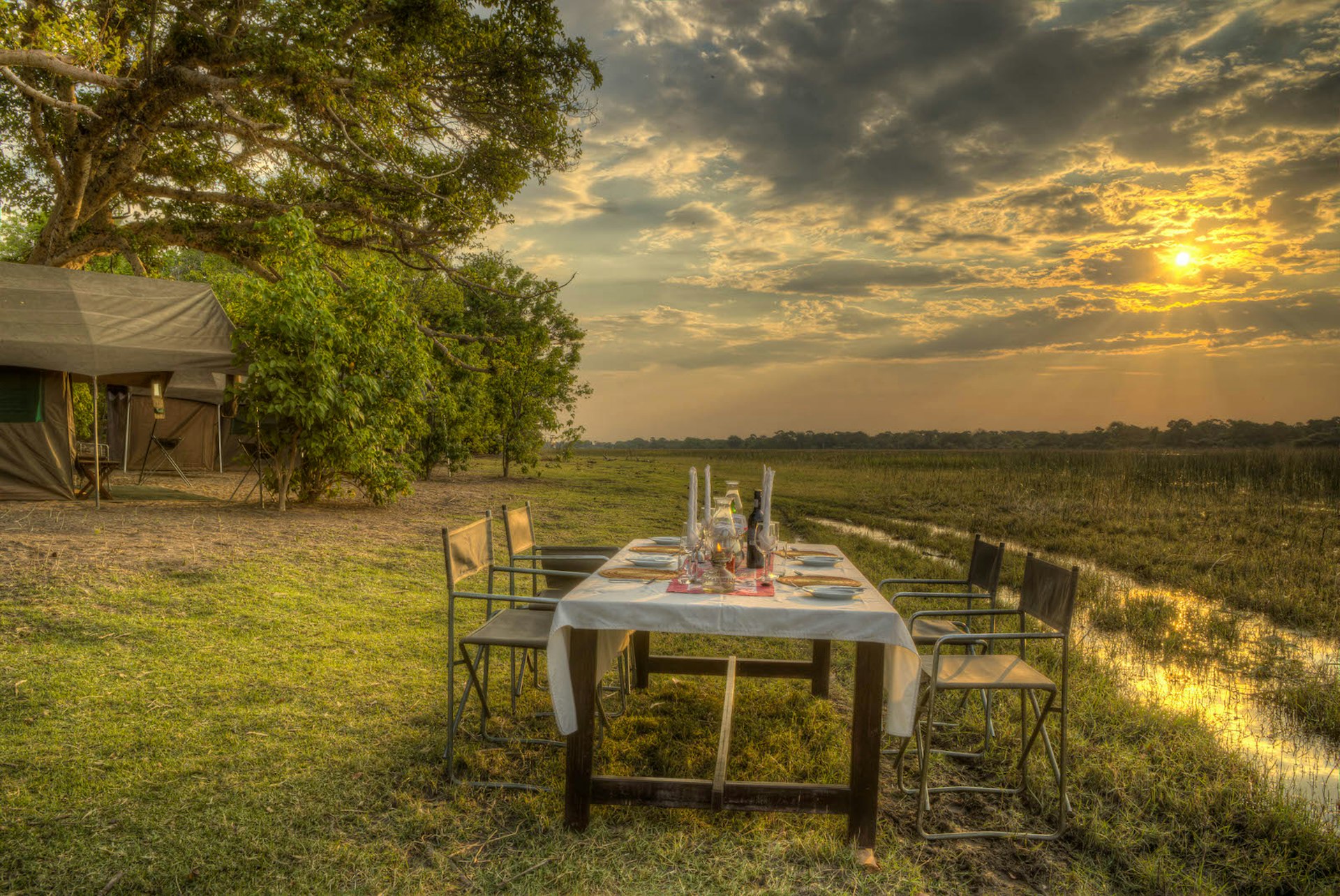
What is a mobile safari? What are the benefits?
A mobile safari is exactly what it sounds like – a journey through a variety of different wildlife habitats, staying for a few nights in each area. When you move location, your camp moves with you. While mobiles are generally less expensive than permanent camps in Botswana, they are often incorrectly perceived as a second-rate alternative to lodges. In reality, they actually boast a string of other advantages, which can make them a preferable option for many travellers.
Each campsite is simply a designated, secluded area of bush with neither facilities nor fences. Before your arrival and after your departure, there is no trace that anyone has stayed there, and the wildlife is free to wander through camp at any time.
Camping in the bush may sound daunting to the uninitiated, but this is more glamping than camping – dispel all thoughts of fighting with a tangle of tent poles and guy-ropes amid lashing rain, while surviving on a diet of tasteless packet-food. On most mobile operations, the staff will erect and dismantle both the guest tents and a mess tent (where you will meet for meals), prepare three-course dinners, and even do your laundry. All you have to do is sit back and relax.
Evenings, isolation and night skies
In the evening, watch amber flames lick hungrily at the charred logs of the campfire as the lilting chimes of miniscule reed-frogs and vociferous crickets float through the cool night air. If you listen closely, you might hear a zebra braying in the distance, an elephant’s trumpet of displeasure or even a rasping, saw-like cough resonating from the inky darkness – the unforgettable call of a leopard patrolling its territory.
The sounds of the bush become more vivid when there is no barrier between you and the wildlife, particularly in the absence of any auditory distractions. Without the monotonous drone of a permanent camp's generator nor any of the background noise inherent in the operation of such lodges – often a mobile will have just three staff – you will find yourself listening to sounds you never imagined existed. And when everything goes quiet, the silence is so intense, it feels almost oppressive.
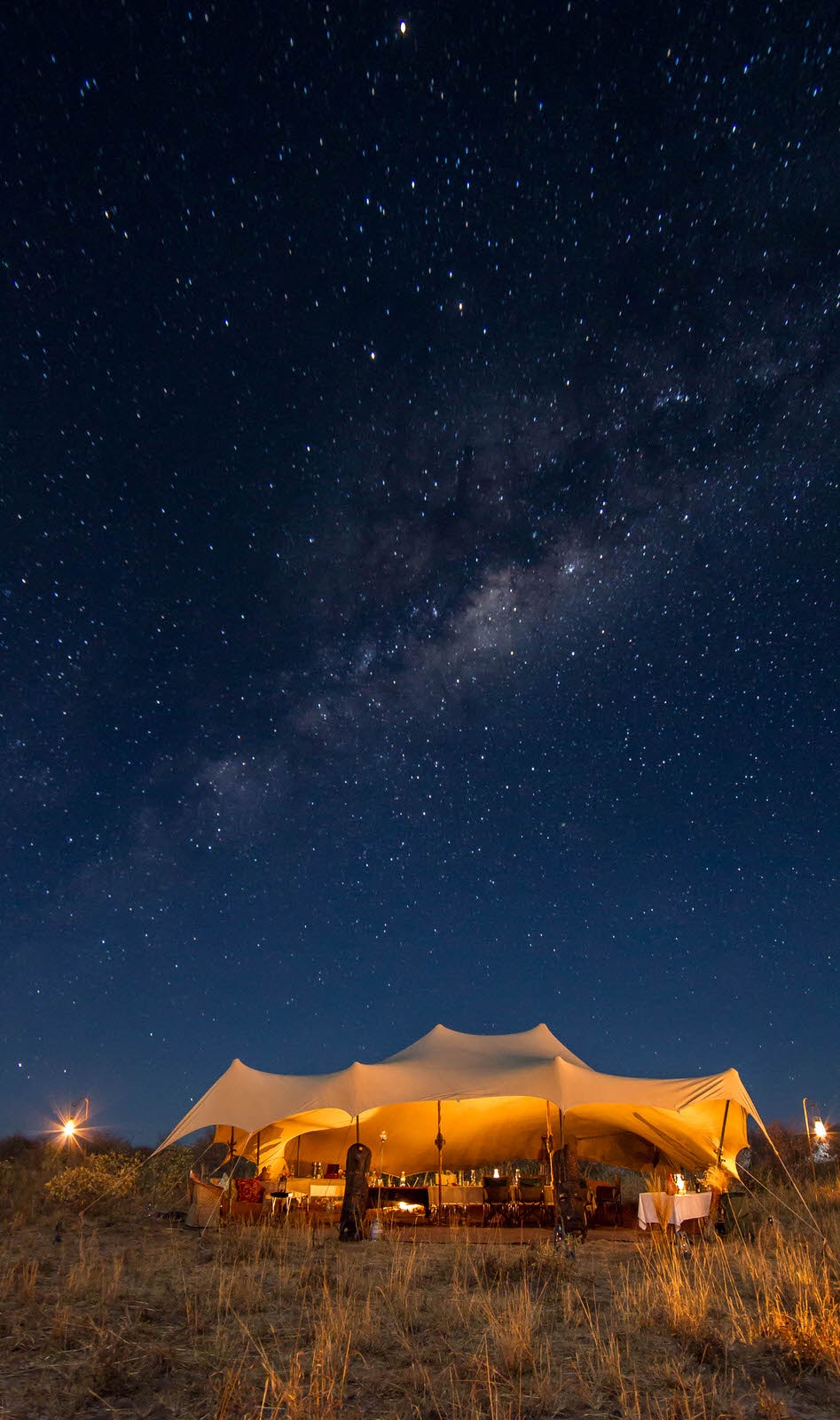
The isolated campsites in Botswana's safari-friendly landscapes, whether in the Okavango Delta, the Central Kalahari Game Reserve or elsewhere, mean there is no light pollution either. Often the only light source for miles around is the warm glow of a dozen lanterns illuminating a handful of cosy khaki tents. Above these, myriad sparkling stars light up the coal-black sky like a bounty of diamonds discovered in one of the country’s productive mines.
Flexible mobile safari activities and guide continuity
The nightly celestial spectacle has a hypnotic beauty, but as with any safari the main action occurs during daytime. Although activities are similar to a traditional lodge – morning and afternoon wildlife drives, interspersed with the occasional mokoro (traditional dugout canoe) journey or boat cruise – the intimacy of the operation gives you more flexibility. Normally a mobile safari will involve just one wildlife-viewing vehicle, allowing you to stay out for as long as you like without having to worry about being late for meals. On a mobile, the camp timings revolve around you, not the other way around.
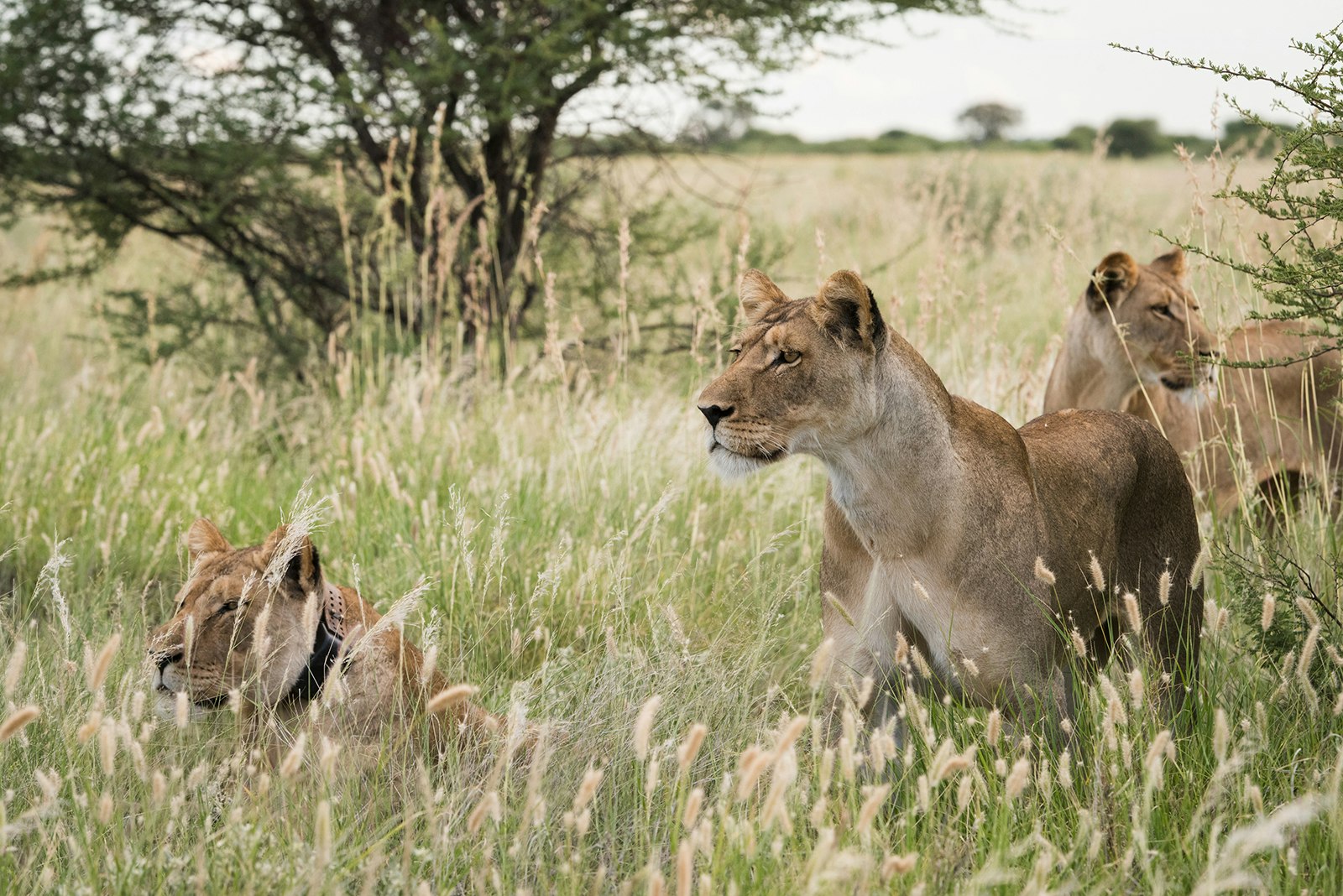
Having the same guide for the duration of the trip also allows the focus of the safari to be tailored to the group’s specific interests, which can be adapted according to what you see. This avoids the possibility of listening to different guides repeat the same information or spending longer than desired at similar sightings at different lodges – sometimes an unavoidable consequence of sharing a vehicle with other lodge guests.
Mobile guides are justifiably known for being some of the best in the business – most did their apprenticeship in permanent lodges before branching out to mobiles – and the extended time you spend together creates a special bond, causing many guests to return with the same guide in subsequent years.
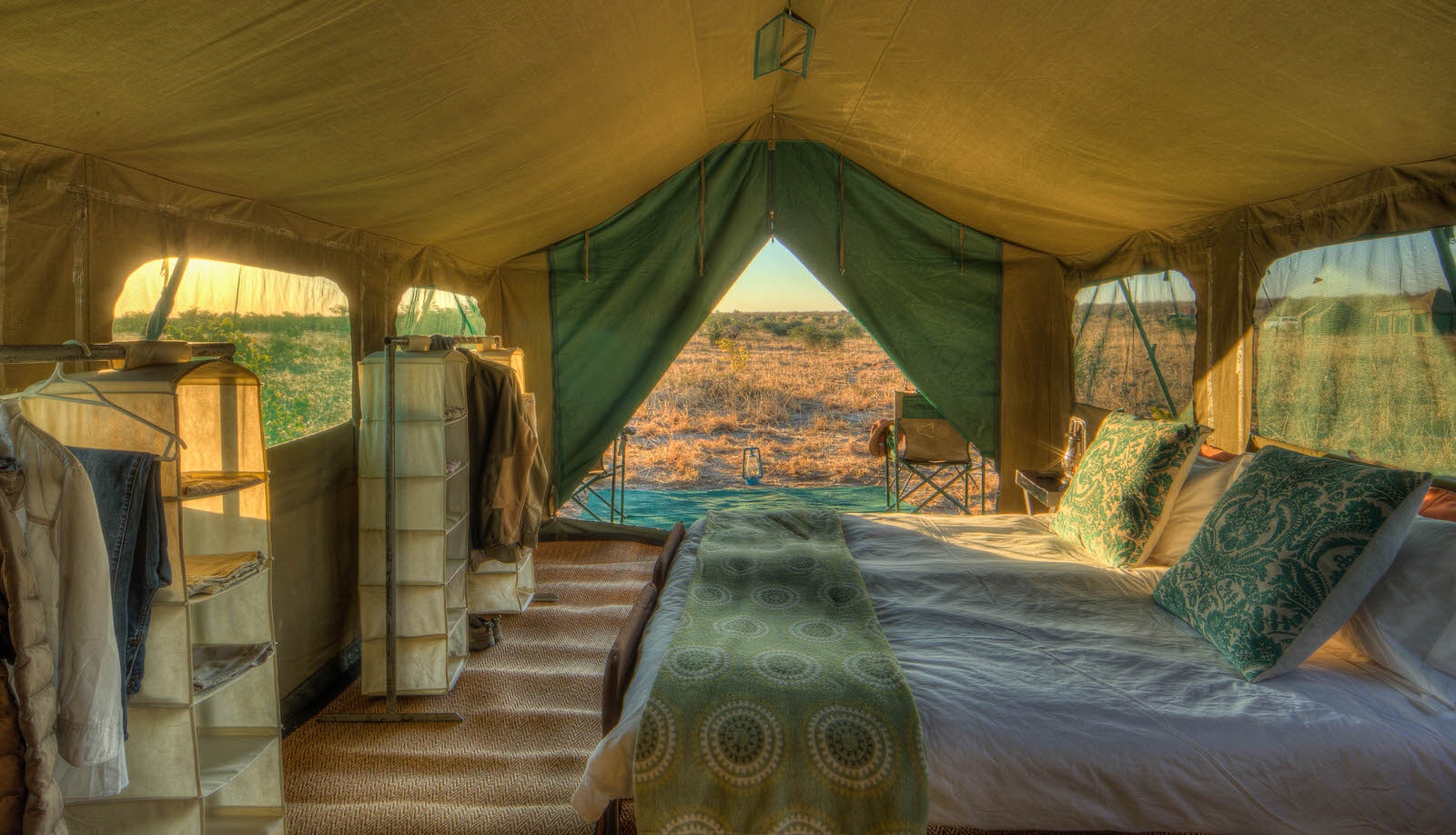
To glamp or not to glamp
Like lodges, mobile safaris in Botswana cover the whole gamut of luxury options. At the most basic level, you will sleep on a bedroll (covered mattress) in a shared dome tent, which you will help to erect and take down, have shared ablutions and possibly assist in the cooking duties. At the other end of the spectrum, your large walk-in tent is adorned with Persian rugs, antique chests and a brass, double bed, while your en-suite bathroom is equipped with a flush toilet and running water. The mess tent will be furnished with more rugs, a sofa to lounge upon during siesta and even a selection of imported single malt whiskies.
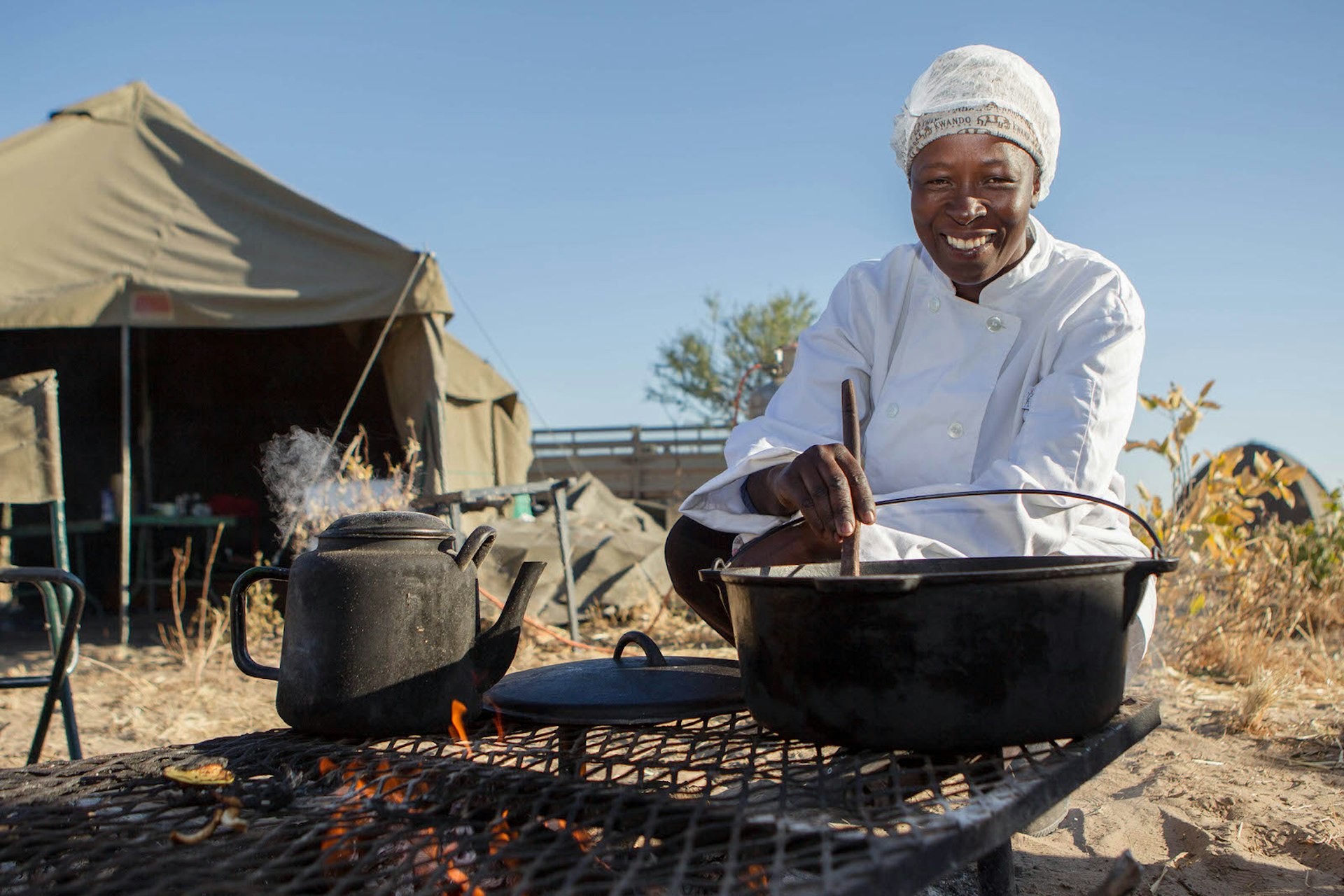
Most travellers will opt for somewhere between the two – a spacious, en-suite tent with twin beds, a bucket shower (filled with hot water on demand), a long-drop toilet and a basin supplied with warm water in the morning. Whatever your choice, the food, all of which is cooked over an open fire, will rival that of many lodges. Delicious loaves of bread and sumptuous cakes are even baked in a bush oven (essentially a modified tin box), in a marvel of culinary creativity that would make Jamie Oliver proud.
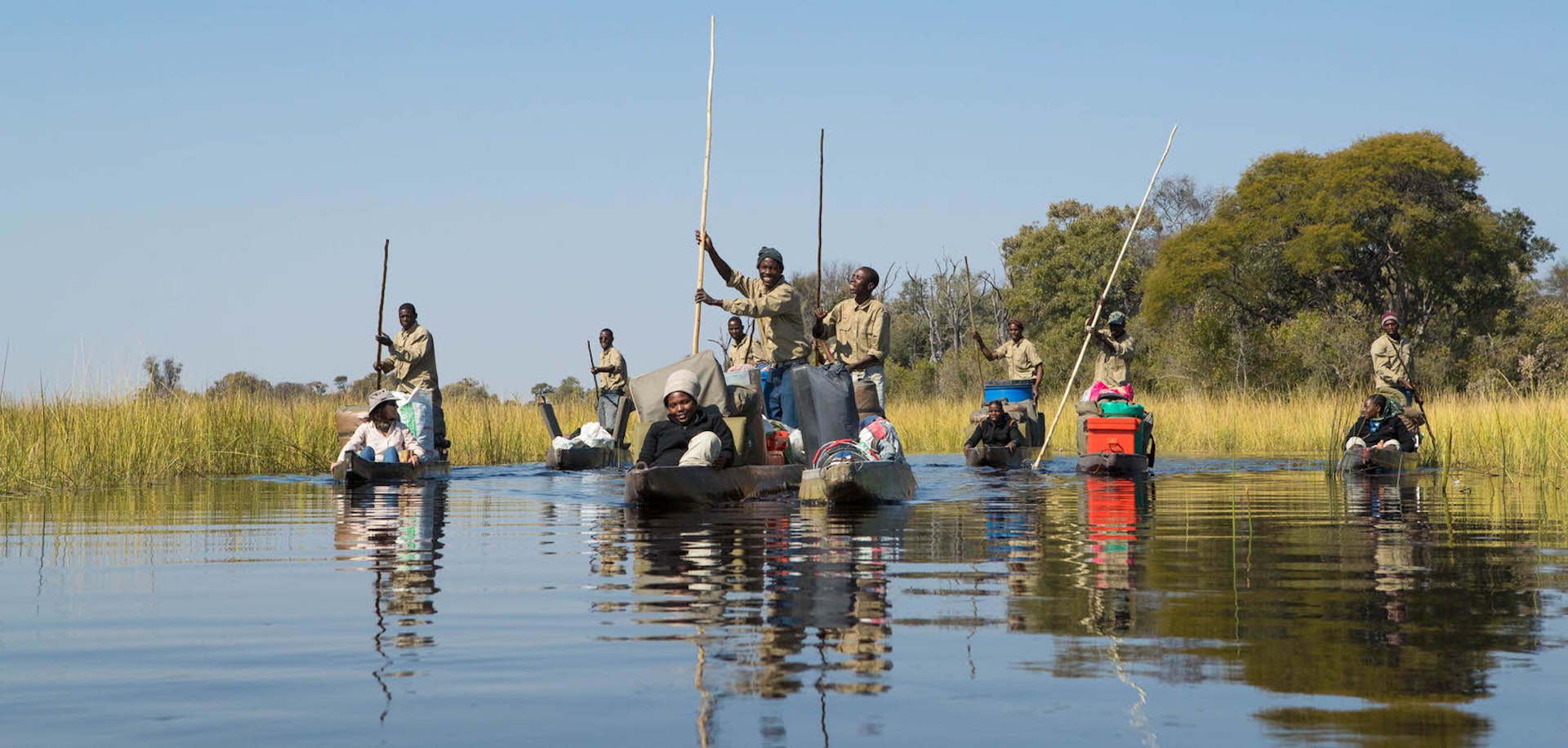
Going green: the ecological benefits of mobile safaris
For eco-conscious travellers, one of the attractions of a mobile is your reduced carbon footprint. Travelling between locations is done by vehicle instead of the small planes that are used to transfer between lodges, which also gives you the opportunity to watch the subtle changes in scenery as you move from one ecosystem to another. In the camp itself, lanterns are often solar-powered, and camera and phone charging is done with an inverter linked to your vehicle’s battery. Some mobile operators also use a portable water filtration system to avoid the waste from plastic water bottles. For an even more environmentally friendly option in the Okavango Delta, you can opt for a mobile on horseback (where the camp is transported by mokoro) or a walking-and-canoe combination – both of which have a zero-carbon footprint.
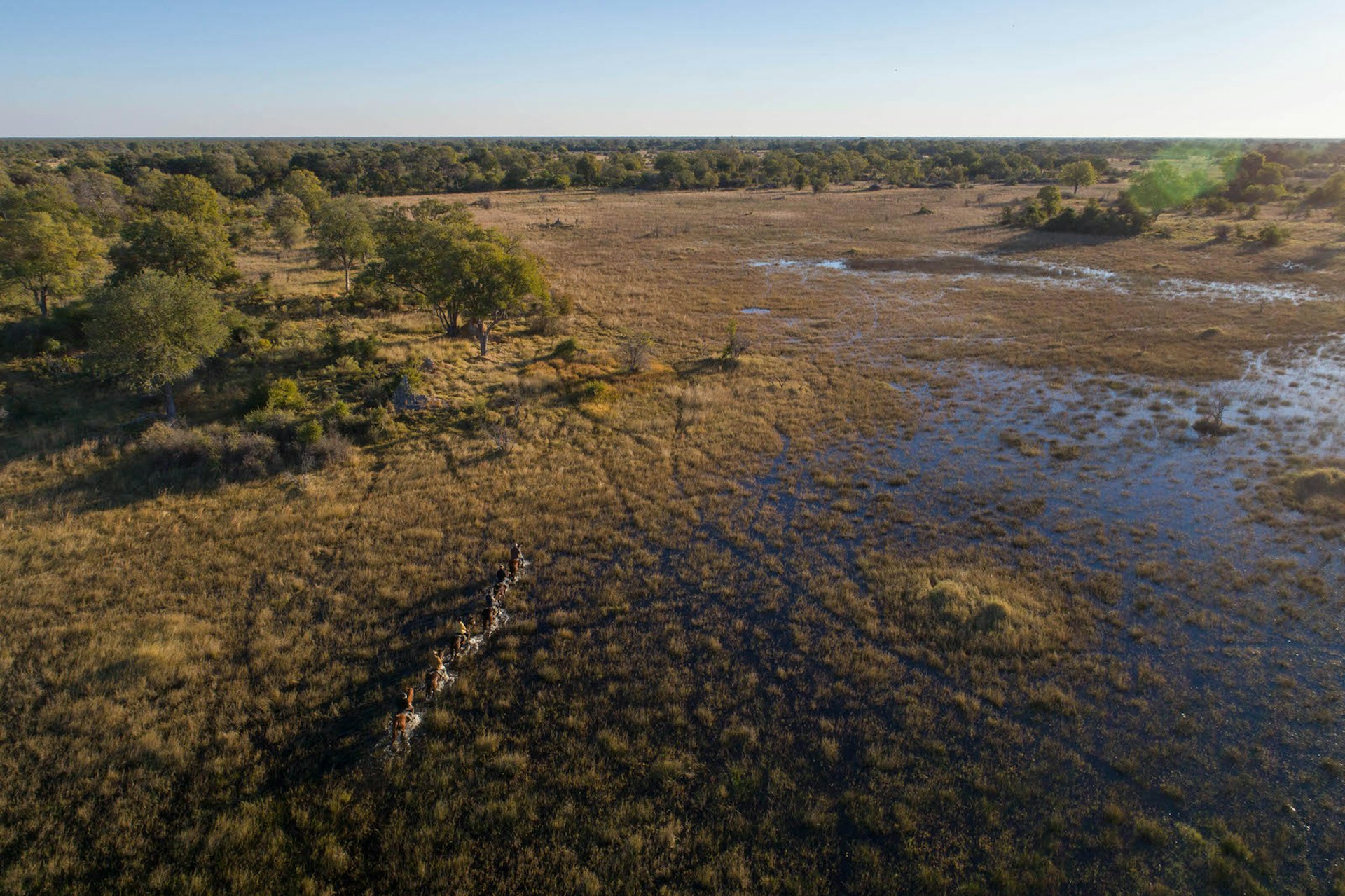
Are mobile safaris for everyone?
Like any safari, there are aspects of a mobile that may not appeal to everyone. During the hotter months, there are no fans or refreshing swimming pools to cool you down during the day, and there is no wi-fi or phone network, so you are off the grid (which some might see as an attraction). The moving days can also be long, although it is amazing to watch the camp disintegrate during breakfast, only for it to reappear in time for sun-downers in a completely different location.
Mobiles mostly operate in national parks, so there may be more vehicles than in a private concession, but it will never feel crowded. Families or groups wanting more privacy have the option of booking an entire mobile for themselves, giving them an exclusive safari at a fraction of the exorbitant cost of hiring out an entire lodge.
Admittedly, the idea of wild animals roaming through camp can take some getting used to, but there is never any danger as long as you stay in your tent at night. Watching an elephant slake its thirst from your shower bucket while you are savouring lunch is an experience you are unlikely to forget.
